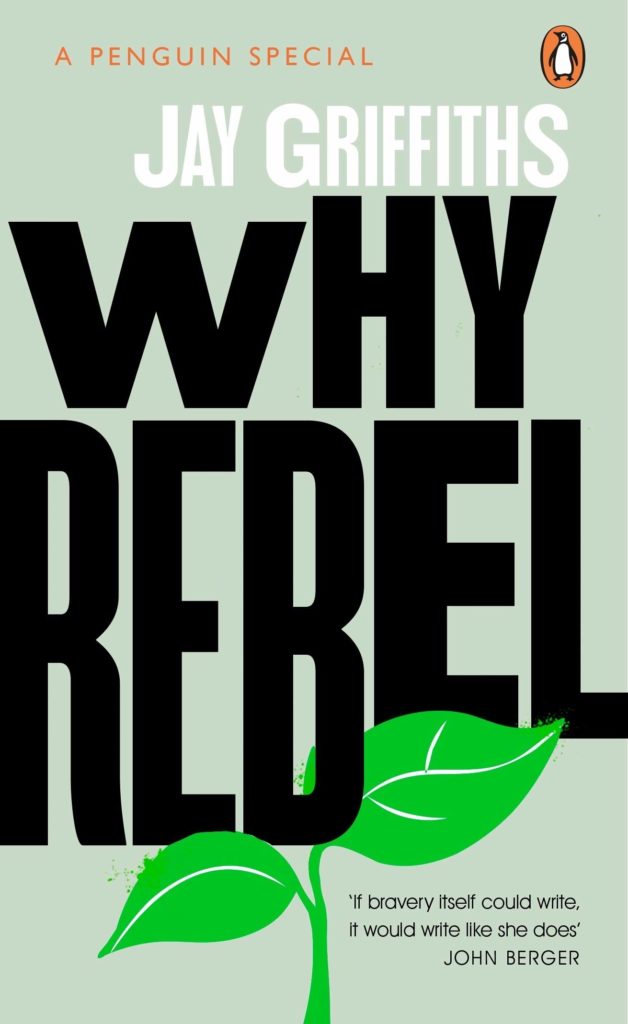An extract from Jay Griffiths’ ‘Why Rebel’ — a passionate, poetic manifesto for urgent rebellion against our imminent extinction, published by Penguin earlier this week.

One morning in spring, when I was about twelve, at the edge of adolescence, I woke up with a heavy heart and a dilemma. It was a Saturday morning with no plans. I was aware of the immense peer pressure which dictated that I should be doing girly things like making clumsy forays into eyeshadow or trying on stupid clothes in front of mirrors. I resisted that pressure with all my heart. I didn’t have a mirror or eyeshadow and the only clothes I wore, beyond my school uniform, were a pair of jeans, one brown T-shirt and one brown sweatshirt. The very idea of bras made me yelp with horror like Bart Simpson in the lingerie department. I was a total failure as a girl.
That day, I realized that to grow up female seemed to mean eschewing the natural world, while to be a child was to be a boy, to grab a fish net and a jam jar, fetch my bike and head for the ponds. That is what I did but, although it was springtime and I was in the same season of my own, I felt sadder than I ever had in my life, for it was valedictory, it was autumn in April, it was twilight at dawn. I sat crying, until I grew fascinated and consoled by a water boatman. His name was a metaphor, carrying meaning across from the human world to that of the insect. Each tiny leg of his made a little hollow in the water as he rowed his oars across the whole pond-ocean with a meniscus for a boat.
I was comforted by an insect. A water boatman showed me the way. Such is the reach of biophilia, of the necessity of everything, no matter how tiny.
Nature-connectedness is correlated with emotional and psychological well-being. From the Japanese ‘forest-bathing’ to the joy inherent in Norwegian Friluftsliv or the rush of oxytocin in dog owners, gazing into their dog’s eyes. Happily, dogs also feel the same oxytocin’s delight when they are with the human they love. It is easier, of course, to love one’s cat than to care about the chestnut clearwing moth or the rufous fronted laughing thrush (subspecies slamatensis), but pets themselves can be the ambassadors of the natural world, leading us by the paw into a world richer and more minded than we could ever know by ourselves.
In the Sumatran rainforest, the long-tailed macaques leap like embodied jokes, making the very trees laugh with their sense of swing. A baby monkey jumps from liana to liana, curls its fingers around a branch and dives into a stream: aerial then aquatic acrobatics. A gecko runs up a buttress flank of mahogany and freezes, alert, silently glued to the trunk, its tiny tongue licking up termites. High in the trees, a Thomas leaf monkey, with its long white tail, whiskers and a Mohican, blinks and gazes, blinks and gazes.
This forest, filled with the jungle music of crickets and frogs, is home to all the creatures of The Jungle Book. I’d been invited to join an ecotourist trek to see orangutans, a critically endangered species. The hope of seeing one was only a part of my delight: to put it simply, forests make me happy.
*
‘Why Rebel’ is out now as a Penguin Special paperback original, and is available via bookshop.org, or direct from your local independent bookshop.